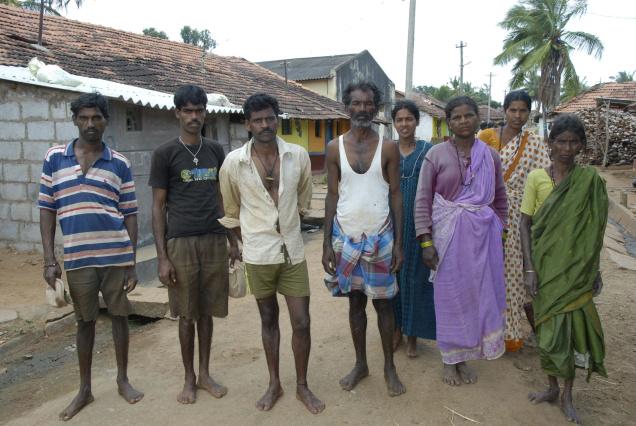 Hassan, August 15: While the rest of the country celebrates Independence Day, the much-vaunted freedom has no meaning for around 40 families of Ragimaruru village in Arakalgudu taluk, who have been bonded labourers for years.
Hassan, August 15: While the rest of the country celebrates Independence Day, the much-vaunted freedom has no meaning for around 40 families of Ragimaruru village in Arakalgudu taluk, who have been bonded labourers for years.
They work every day for a day’s off can attract the wrath of their masters. And, there are no specified working hours. They have to report to work in the agriculture fields of their landlords around 7.30 a.m. and continue to toil till late in the evening.
Endless hours
During the tobacco harvest season, the labourers have to stay put in the landlord’s farm to dry the tobacco leaves right through the night. This inhuman bondage has been continuing in the village decades after the Bonded Labour System (Abolition) Act, 1976, came into being.
Ravish (27) has taken a loan of Rs. 70,000 from his landlord. He borrowed it at different times, whenever his family required money. He has been working as a bonded labourer for seven years. His work is valued at Rs. 12,000 per year. As he completes one year of work in the landlord’s field, Rs. 12,000 is deducted form his total borrowings. This means he works for Rs. 1,000 per month, which amounts to less than Rs. 34 per day.
Similarly, Nagendrappa had borrowed Rs. 50,000 from his landlord. “I required money for household needs and for my daughter’s marriage. I have been working for the landlord to clear my dues. I don’t think I can clear it in my lifetime. My children may also have to continue to toil like me,” he said.
All those working as bonded labourers belong to the Scheduled Castes and they do not own any land. Once they enter the system, it is difficult to escape. “I have been working as a bonded labourer since my childhood. Since then, I have worked for over 25 years under 10 landlords,” said Annaiah.
From an early age
Like Mr. Annaiah, many became labourers at an early age. As they do not get wages for work, apart from deductions in the total borrowings, they have to borrow more from the landlords if they require big money spends such as for a marriage, a festival or a death in the family. “As we borrow without clearing the old dues, our total borrowings pile up and we end up with having to continue to work with the landlord for years,” said Nagendrappa, another bonded labourer.
The bonded labourers in Ragimaruru village were tracked by Jeeta Vimukti Karnataka (Jeevika), an NGO, during a survey conducted as per the Supreme Court’s direction in October 2012. M.S. Yogesh, Arakalgudu taluk convener of Jeevika, has listed around 40 bonded labourers in the village.
Landlord denies
Arakalgudu tahsildar K.P. Eshwarappa visited the village on July 5 and interacted with the bonded labourers. But, the administration has not taken further action. When The Hindu contacted Mr. Eshwarappa, he said he had spoken to all those who claimed to be bonded labourers, but the landlords denied they were in their employee.
“We are conducting another survey involving officers of Rural Development and Panchayat Raj, Social Welfare Department and Revenue Department. We will take action based on that,” he said.

